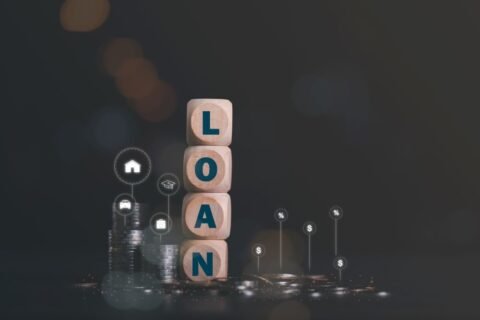Understanding the Different Types of Loans: Which One Is Right for You?
Photo by Christine Roy on Unsplash
When financial challenges arise, a loan can offer relief and help you cover essential expenses, consolidate debt, or make a big purchase. However, not all loans are the same, and choosing the right one is crucial, especially if you are on a tight budget. Resources like moneyfor.com can guide you through the loan selection process and help you choose the loan that is right for you and your financial obligations.
Secured vs. Unsecured Loans
| Feature | Secured Loan | Unsecured Loan |
| Collateral | Requires collateral (your car or home) | No collateral required |
| Risk to borrower | Risk of losing the collateral if no payments are made | No risk of losing assets |
| Interest Rates | Lower interest rates due to lender’s reduced risk | Higher interest rates due to no collateral |
| Loan amount | Often allows for larger loan amounts | Typically smaller loan amounts |
| Eligibility | Easier to qualify if collateral is available, even with poor credit | Based on creditworthiness and financial history |
| Use cases | Common for large purchases (e.g., homes, cars) or debt consolidation | Suitable for smaller expenses, personal needs, or emergencies |
| Consequence of default | A lender has an option to seize the collateral to recover losses | Default could negatively affect credit score but no loss of physical assets |
Secured Loans
Auto Loans
With this loan, the vehicle you buy acts as collateral, so if you fail to make your payments, the lender has the right to repossess the car. Auto loans usually offer lower interest rates than unsecured loans because of the collateral, which makes them more affordable for those with good credit.
For individuals with limited funds, an auto loan can be a necessary tool to secure transportation, especially if a car is essential for commuting to work or taking care of family. However, it is important to calculate all the costs involved, including the down payment, monthly installments, and interest rates, to ensure you can afford the loan. Overextending yourself on an auto loan can lead to financial strain, so choose a car within your budget.
Home Equity Loans

This loan type allows homeowners to borrow against the equity they have built up in their property. It is secured by your home, meaning that failure to repay could result in foreclosure. Home equity loans are often used for significant expenses such as home renovations, medical bills, or consolidating high-interest debt.
For individuals who own property and need a larger sum of money, a home equity loan can be an affordable option due to the lower interest rates associated with secured loans. However, this type of loan carries significant risks, particularly if you are already experiencing financial difficulties. Losing your home due to an inability to make payments is a serious consequence, so it is essential to carefully weigh the risks before taking it out.
Unsecured Loans
Personal Loans
Personal loans offer flexibility, as you can use the funds for a variety of purposes, such as debt consolidation, medical expenses, home repairs, or unexpected bills. With personal loans, you will typically receive a lump sum that you repay in fixed installments over a specified period.
For individuals with limited financial resources, personal loans may seem appealing due to their fixed payment structure. However, it is essential to carefully review the terms and interest rates, as these can vary significantly depending on your credit score and the lender. A high interest rate can make monthly payments difficult to manage, so it is important to ensure that you can afford the loan over its full term.
Payday Loans
For those who need money fast, payday loans may appear to be a convenient option. These are short-term loans meant to cover emergency expenses, often to be repaid on your next payday.
While these offer quick access to funds, they come with very high interest rates and various fees. The short repayment window — usually two weeks — can pose another challenge for paying back the loan in full. This also leads to a cycle of debt as borrowers take out additional loans to cover the initial one.
Due to the high costs associated with payday loans, they are generally not recommended unless you have no other alternatives. If you are already facing financial hardship, payday loans can worsen your situation, as the interest and fees can quickly add up and make getting back on your feet even harder.
Installment Loans
An installment loan is a type of loan where you borrow a specific amount of money and repay it in equal installments over a set period. They are usually used to make large purchases like appliances, furniture, or cars because they allow a borrower to build a predictable payment schedule. For those who have limited funds, these can be easier to manage because the fixed payments allow you to plan your budget.
The loan terms are typically longer, ranging from a few months to several years, which can lower the monthly payments but may also result in higher interest costs over time. It is essential to understand both the interest rate and the length of the repayment term when considering this option, as longer terms may seem more affordable but lead to higher total costs in the end.
Student Loans

Student loans are designed to help individuals finance their education. They can be of two forms: federal and private.
- Federal student loans are provided by the government and often come with lower interest rates, flexible repayment options, and benefits like income-driven repayment plans. For those with limited financial means, federal student loans may be more accessible and affordable due to these favorable terms.
- Private student loans are issued by private lenders, like banks or credit unions. They are usually less flexible and come with higher interest rates. It is crucial to explore all federal loan options before turning to private ones, as federal loans tend to offer better terms for students who may have limited financial resources.
Investing in education through student loans can lead to better career opportunities and higher income potential in the long run. However, it is important to borrow responsibly and understand the full implications of student loan debt, as repayment can be a significant financial burden for years after graduation.
Credit Builder Loans
If you have little to no credit history or are trying to rebuild damaged credit, a credit builder loan might be a good option. Unlike other loans where you receive the money upfront, with a credit builder loan, the lender holds the loan amount in a savings account while you make payments. Once you have fully paid off the loan, you receive the money.
This type of loan is specifically designed to help individuals improve their credit score by establishing a record of timely payments. For those who struggle with poor credit and need to access better loan options in the future, a credit builder loan can be an effective tool. However, the loan itself does not provide immediate financial relief, since you do not get access to the funds until the loan is repaid.
Debt Consolidation Loans
A debt consolidation loan is used to combine multiple debts into a single loan with a single monthly payment. It is often used to simplify finances and reduce the burden of high-interest debts like credit card balances. By consolidating your debts, you can make your monthly payment management much easier. Lowering your interest rate is also a very useful side effect of the consolidation process.
For people with limited funds and those who are struggling to keep up with multiple debts, a debt consolidation loan can offer relief by streamlining their repayments and potentially lowering interest rates. However, it is important to ensure that the new loan offers better terms than your existing debts. Otherwise, consolidating might lead to higher costs over time.
Which Loan Is Right for You?
Choosing the right loan depends on your financial goals, current income, and credit score. For individuals with limited resources, it is essential to consider each option and understand the risks involved. Secured loans may offer lower interest rates, but they also carry the risk of losing valuable assets if you cannot make payments. As a rule, unsecured loans are easier to access, but they often come with higher interest rates, which can strain your budget.
Before deciding, evaluate your needs and consider whether the loan will help you achieve your financial goals without putting you under additional stress. It may also be beneficial to explore alternatives such as budgeting, reducing expenses, or seeking financial counseling to address your needs without high-interest loans.
The world of loans can be overwhelming, especially when you have limited financial resources. Understanding the different types of loans available and how they align with your financial situation and goals is crucial when it comes to making informed decisions. If you want to responsibly cover an emergency expense, finance an education, or consolidate debt, take the time to research and select the loan that will be right for you.

Daniel J. Morgan is the founder of Invidiata Magazine, a premier publication showcasing luxury living, arts, and culture. With a passion for excellence, Daniel has established the magazine as a beacon of sophistication and refinement, captivating discerning audiences worldwide.





